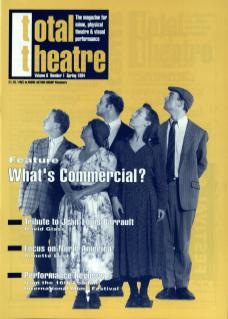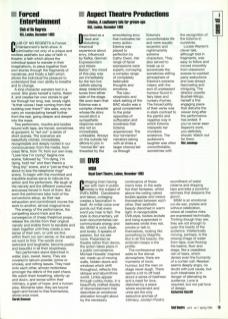Described as a ‘dark and disturbing theatrical experience about envy, influenced by Kafka, German Expressionism and Hilaire Belloc’, the mood of this play was set immediately by the two live cellists playing deep melancholic tunes from either side of the stage. We soon learn that Edwina was a complex character whose life story would elicit a sympathetic response were she not so immediately unlikeable. Always on the outside her efforts to join in ‘normal life’ are thwarted by the smouldering envy that motivates her every action. Edwina was played to perfection by Cathy Owen. Her range of facial expressions were superb, conveying a complex range of completely believable thoughts and emotions.
The claustrophobic and stark setting of the BAC studio was a good complement to the polar opposites of suffocation and loneliness that Edwina experienced. The four tormentor / narrators (along with at times a larger chorus) led us through Edwina's uncomfortable life and were equally eccentric and nightmarishly extreme characters. They also served to break up or accentuate the sometimes stifling atmosphere of Edwina's extreme misery with the sort of unpleasant humour found in fairytales and nursery rhymes. The forced jollity of their verse was in stark contrast to the painful and negative way in which Edwina interprets her mundane existence. The audience's laughter was often uncomfortable, sometimes with the recognition of the Edwina in ourselves.
Louise Warren's clever tale, although told in fragments, was easy to follow and moved smoothly from classroom scenes to cocktail party seductions and was always fascinating and intriguing. The director Josette Bushell-Mingo contributes to a fine engaging piece that disturbs the viewer long after the performance has ended. If you've never seen Aspect's work, you definitely should. Watch out for them.

